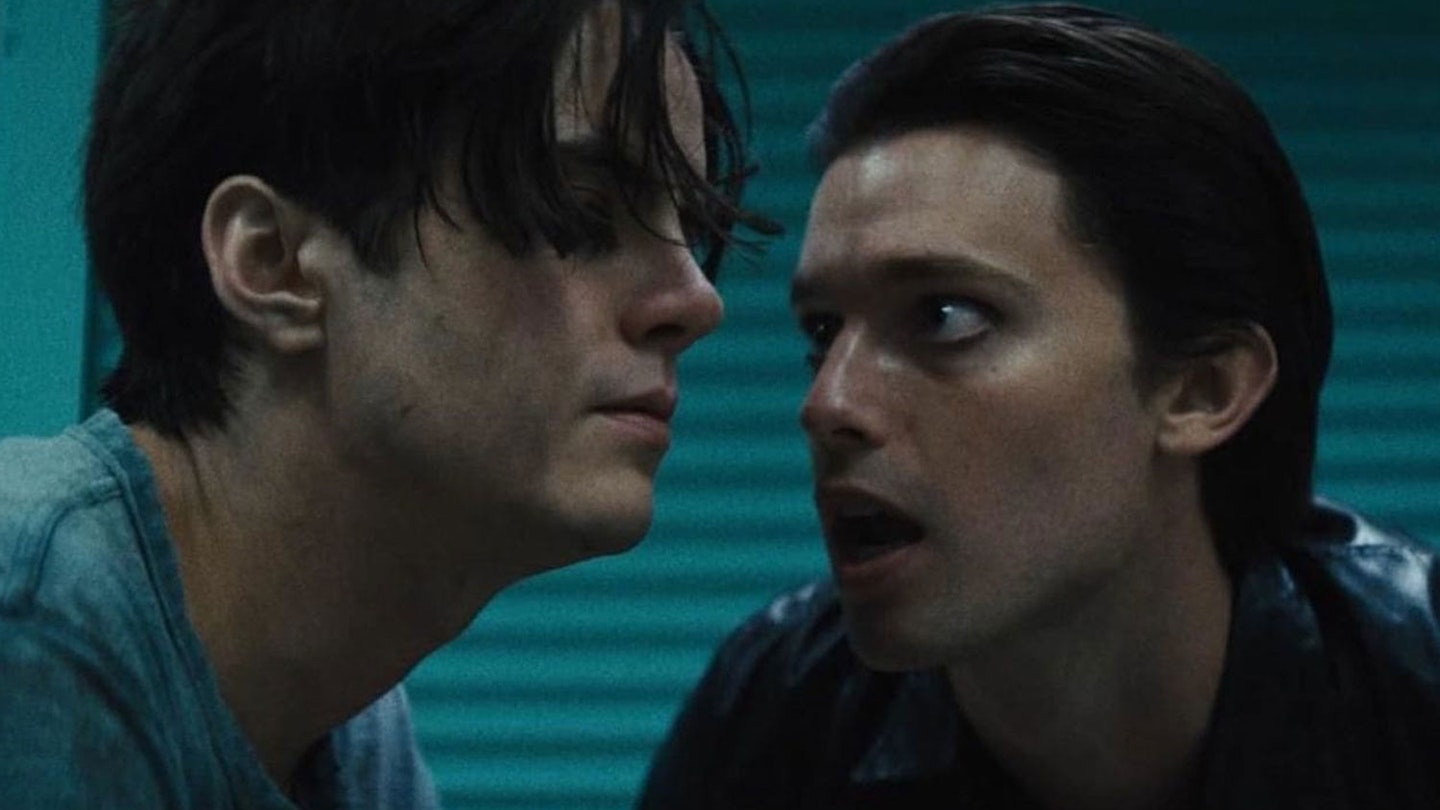Adam Egypt Mortimer’s second feature film as writer and director, Daniel Isn’t Real, feels like a missed opportunity. Opening with horror much more within the bounds of possibility and a subject that had the potential to be resonant and genuinely cathartic, a young Luke bears witness to the aftermath of a mass shooting in a small cafe. The sight of this brutal violence sets something off, and with his parents constantly fighting, he turns to his sinister imaginary friend, Daniel.
It’s an efficient set-up to the rest of the film, with Luke’s various traumas and his family’s history of mental illness clear from the jump, but the premise is soon squandered. Despite inventive visuals and the occasional gross-out moment it feels pedestrian, an amalgamation of familiar beats. It’s harder still to be concerned when the characters are so shallow. Luke is mostly a blank slate, Daniel appears as a halfhearted nightmare take on the garish stylings of Fight Club’s Tyler Durden, and Sasha Lane, maybe one of this generation’s most distinctive new talents, is stuck in yet another girlfriend role. As Cassie she plays a ‘struggling’ artist with a New York loft apartment, and a touch of Manic Pixie and boilerplate ‘cool girl’ affectations. It’s a thankless, superficial part, far from the naturalism of her breakout in American Honey.
As more is revealed about Daniel’s history as well as Luke’s struggle with his manipulations, the film takes on an exploitative tone that makes Split looks sensitive by comparison. Mortimer places the responsibility of the film’s violence on generic, undefined depictions of mental illness. Daniel himself, a consistently toxic, sinister presence, reduces a complex and wide-ranging topic to an individualised threat — a supernatural being that needs to be locked away or destroyed, rather than something to learn how to live with.
